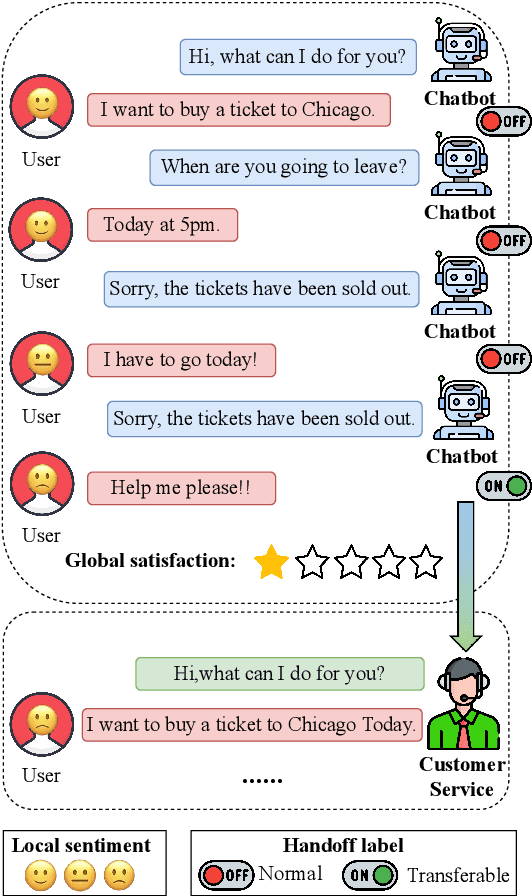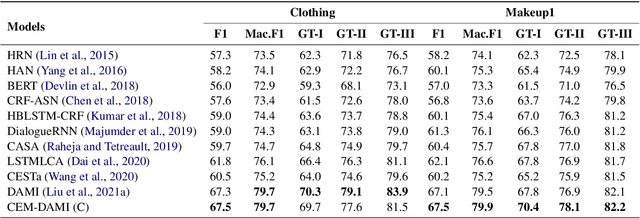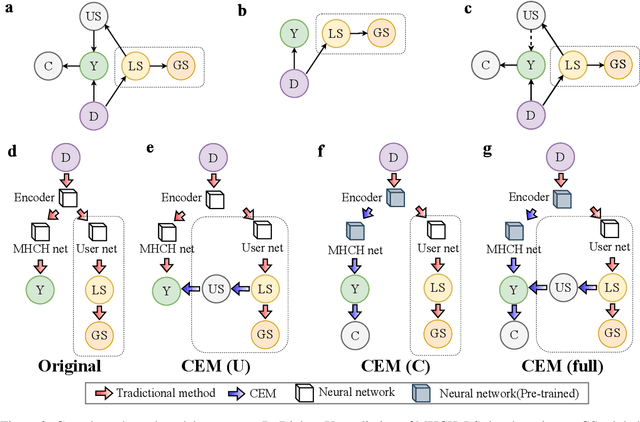Causal Inference for Chatting Handoff
Paper and Code
Oct 06, 2022



Aiming to ensure chatbot quality by predicting chatbot failure and enabling human-agent collaboration, Machine-Human Chatting Handoff (MHCH) has attracted lots of attention from both industry and academia in recent years. However, most existing methods mainly focus on the dialogue context or assist with global satisfaction prediction based on multi-task learning, which ignore the grounded relationships among the causal variables, like the user state and labor cost. These variables are significantly associated with handoff decisions, resulting in prediction bias and cost increasement. Therefore, we propose Causal-Enhance Module (CEM) by establishing the causal graph of MHCH based on these two variables, which is a simple yet effective module and can be easy to plug into the existing MHCH methods. For the impact of users, we use the user state to correct the prediction bias according to the causal relationship of multi-task. For the labor cost, we train an auxiliary cost simulator to calculate unbiased labor cost through counterfactual learning so that a model becomes cost-aware. Extensive experiments conducted on four real-world benchmarks demonstrate the effectiveness of CEM in generally improving the performance of existing MHCH methods without any elaborated model crafting.
 Add to Chrome
Add to Chrome Add to Firefox
Add to Firefox Add to Edge
Add to Edge